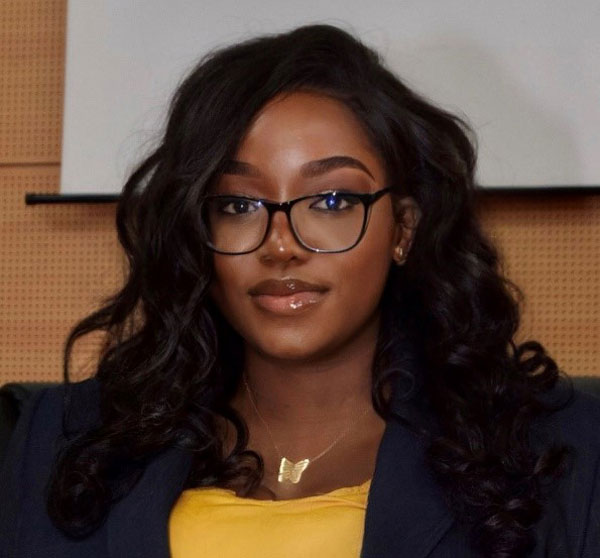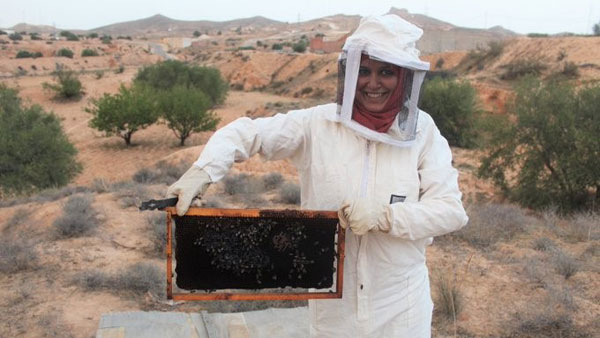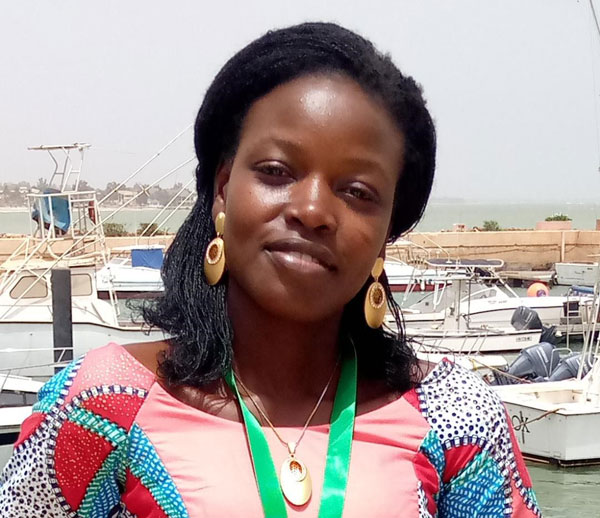Meet the young entrepreneurs fighting to preserve and restore our biodiversity
IFAD Asset Request Portlet
Asset Publisher
Meet the young entrepreneurs fighting to preserve and restore our biodiversity
Estimated reading time: 3 minutesToday’s youth are not only inheriting a broken planet, they are also being asked to fix it. Young people the world over have grown up in an age of polycrisis, burdened by the errors of past generations.
Despite being confronted by seemingly unsurmountable crises, many youths have armed themselves with hope, perseverance and knowledge in an attempt to mend an ailing planet.
They know that conserving our world’s biodiversity is key to eradicating hunger and to achieving a healthy and sustainable food system. With support from IFAD and organizations like the Global Biodiversity Youth Network (GBYN), these young game-changers are paving the way to a better world.
GBYN, an international network run entirely by young people, empowers youth to push for a green transition through activities that protect and restore the ecosystem.
We meet three biodiversity champions making a tangible difference in their local communities: GBYN member Michelle, and IFAD beneficiaries Hasna and Chantal.
Michelle Gaëlle Simeone Bidima: Healthy soil for a healthy world
 |
| Photo courtesy of Michelle Gaëlle Simeone Bidima |
In Burkina Faso, chemical pesticides are the most common form of pest management. These not only harm humans but they threaten biodiversity by remaining in the soil for decades, potentially leading to food poisoning.
Having specialised in plant and environment protection, Michelle knows that farmers can still grow healthy crops with environmentally friendly pesticides. With support from GYBN, she has set out to establish the Faso BiodivConserv Hub – a nation-wide youth network where users share information on the importance of biodiversity and how to conserve it. To date, Michelle has mobilized over 100 young people and trained them in biodiversity conservation.
“I refuse to burden my descendants with the consequences of biodiversity loss,” she says. “My aspirations are to continue to engage community members, mainly young people, as guardians and champions of biodiversity—because our future depends on it.”
Hasna Zammouri: Healing nature, one bee at a time
 |
| Photo courtesy of Hasna Zammouri |
Hasna graduated from university in Tunisia with a degree in genetics and biodiversity. Like so many other young people, she struggled to find employment.
But then, she discovered PRODEFIL and received training and the necessary material to embark on her new adventure: beekeeping.
Today, Hasna tends to her bees, produces and sells about 50 litres of organic honey a year and safeguards local biodiversity. Through their pollination, the bees have also helped to increase crop yields in nearby fields.
“It’s time to believe in us—rural youth everywhere—as agents of change and sustainable development, and as political actors who will build the future in an equitable and inclusive way,” says Hasna.
Chantal Adiko: Turning tragedy into triumph
 |
| Photo courtesy of Chantal Adiko |
Compost is often called “black gold” because of its many benefits: it cuts down on the use of pesticides, makes growing food easier and limits the use of chemical fertilizers.
This is especially important in Benin, where chemical fertilizers are rendering the soil infertile and contaminating water supplies. In 2015, after seeing the need for a natural alternative, Chantal founded AfricaCompost, an organic fertilizer company that recycles disused organic waste into microbiological compost.
Today, AfricaCompost has a dedicated composting site and sells 20 tons of compost a year with an annual turnover of US$ 970. They also bring together a network of producers and processors to easily access inputs and make sales easier. What's more, Chantal has shifted gender norms in a male-dominated industry and highlighted the importance of empowering women in all areas of life.
Read more about IFAD's work on biodiversity.
To get in touch with IFAD's biodiversity team please email: [email protected]
To get in touch with IFAD's youth team please email: [email protected]
Publication date: 14 March 2023